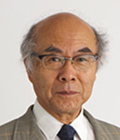
The 2012 Law and Development Institute Conference: New Issues in Law and Development: from East Asian Practice
Venue: Ewha Womans University Law School, Seoul, Korea
Schedule:
| 1:40 – 2:00 pm | Opening Remarks: Lee Yong Shik (Director of Law and Development Institute) Welcoming Remarks: Oh Jong Geun (Director of Ewha Legal Research Institute) |
| 2:00 – 3:10 pm | Session 1: Critical Issues in Developmental State Presentation Summary: Prof. Y.S. Lee reviews the development of law and development studies in the recent decades, identifies particular issues and problems, and proposes a new structure for the theoretical framework. In his presentation, Professor Lee underscores the significance of the economic development experiences of the East Asian countries and its relevance to the law and development studies. He also emphasizes the importance of establishing methodology for law and development studies and the necessity of analyzing the mechanism by which laws applied to specific economic activities and industrial areas affect economic development. He examines views that support the incorporation of “social issues” as well as economic issues in the law and development studies and cautions against the use of law and development studies and development projects as a way to promote certain political ideologies. The Law and Economic Development from 1960s to 1970s in Korea Presentation Summary: Korea showed unparalleled economic development in the 1960s and the 70s, which enabled the majority of Korean population to escape from absolute poverty and build the industrial foundation for today’s Korea. Korea’s economic development has been widely studied for decades. In line with these studies, Professor Jung examines the economic policies, which were implemented through various legislation and other legal devices, during the period of rapid economic development in Korea in the 60s and 70s. He analyzes the achievements and drawbacks associated with the implementation of economic development policies in Korea and draws lessons from the Korean experience. |
| 3:10-3:20 pm | Coffee break |
| 3:20-4:30 pm | Session 2: Legislation and Development Presentation Summary: Professor Liao discusses three modes of legislative behavior in Taiwan, namely regulatory legislation, rhetorical legislation, and reflexive legislation which is by legislators in accordance with their own political needs and interests. Studies have revealed that most legislators prefer regulatory legislation as the best and only way to solve social problems. They also rely on administrative agents for the implementation of legislation regardless of the legislative mode. Legislators regard the rhetorical mode significant for their political interest to manipulate mass media in the process of legislation. Most legislators do not understand the interest of non-profit and for-profit interest groups in reflexive legislation. The gap that is created between legislation and social practices in Taiwan, due, perhaps in part, to the rhetorical mode, may lead Chinese people in the mainland, who see Taiwanese legislative activities on T.V., to believe that “rule of law” is not realistic (i.e. not very useful) for them. Development of Legislation Theory and Practice in Korea Presentation Summary: Professor Kim reviews changes in the Korean legislative practice from focusing on instrumental rule of law to substantial rule of law. Korea emphasized the former in early economic development era (1962-1979) and after this period showed a transition to more substantial rule of law. Many law and development projects aim to enhance legislative capacities in developing countries, and legislation theory is important. In the context of law and development, legislative theory should be linked to the concept of rule of law which can be classified into instrumental rule of law (“thin version”) and substantive rule of law (“thick version”). Although many commentators argue that the former should be replaced by the latter, substantial rule of law cannot successfully be rooted without the basis of instrumental rule of law. Bridging the gap between legal norm and legal reality, which shows the level of rule of law in each country, is also an essential element of instrumental rule of law. Dynamic relationship between these competing concepts of rule of law has been manifested in active implementation of constitutional law reviews by the Constitutional Court of Korea. |
| 4:30-4:40pm | Coffee Break |
| 4:40-6:20pm | Session 3: Economy, Law and Development Presentation Summary: Professor Lee discusses the practical and legal difficulty that developing Members encounter in participating in the dispute settlement system of the WTO. Based on this general awareness, he introduces the current status of the DSU Amendment Negotiations at the WTO and the views of the developing Members expressed in the negotiations. His presentation also covers some of the key issues being discussed at the DSU Amendment Negotiations, with the implication on the interest of the developing country Members under the proposed new system. Development of Laws on Boosting Regional Economy in Korea Presentation Summary: Professor Kang presents the history, contents, characteristics, and problems of the laws and regulations designed to boost the regional economy of Korea. The regional economy of Korea, which shows considerable gaps with the economy of central Korea (Seoul and its vicinity), can be improved through (changes with) the governance of the central and regional governments, as well as actions of private enterprises, in administration and finances. He also suggests ways of improvement for the legislation intended for the improvement of the regional economy. Several statutory provisions specifically enacted to promote the regional economy are considered in this context. Development of Consumer Laws in Korea: in Relation to Competition Law Professor Shin discusses the development of consumer law in relation to competition law in Korea. Both competition law and consumer law have a common objective of enhancing consumer welfare: the former by creating fair and competitive market conditions and the latter by directly protecting the interest of consumers. Yet, competition law and consumer law operate on different standpoints and apply different instruments to attain the goal. This difference might create conflicts with each other and undermine the common objective. Thus it is important to determine the appropriate parameters for the application of consumer law and competition law to avoid conflicts and ensure their harmonious implementation to maximize consumer welfare. To achieve an efficient balance between effective competition and maximization of consumer welfare, it is important to establish a proper balance between the application of competition law and consumer law. This balance point may be different in accordance with the stage of economic development in each country. |
| 6:20-6:30pm | Closing Remarks |
| 6:30-8:00pm | Dinner |
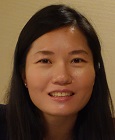 Dr. Hye Seong Mun
Dr. Hye Seong Mun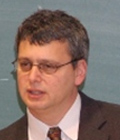 Professor Colin Picker
Professor Colin Picker Dr. Tomer Broude
Dr. Tomer Broude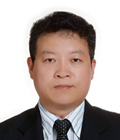 Professor Wang Jiangyu
Professor Wang Jiangyu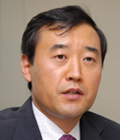 Professor Won-Mog Choi
Professor Won-Mog Choi Dr. Andrew D Mitchell
Dr. Andrew D Mitchell Dr. Salim Farrar
Dr. Salim Farrar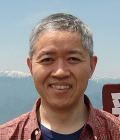 Professor Junji Nakagawa
Professor Junji Nakagawa Professor Maureen Irish
Professor Maureen Irish Professor David Gantz
Professor David Gantz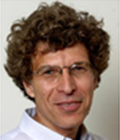 Professor Moshe Hirsch
Professor Moshe Hirsch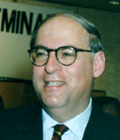
 Professor Yong-Shik Lee
Professor Yong-Shik Lee